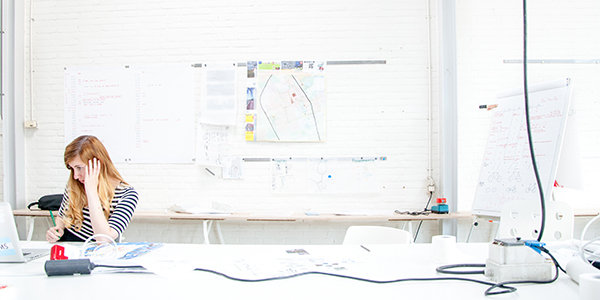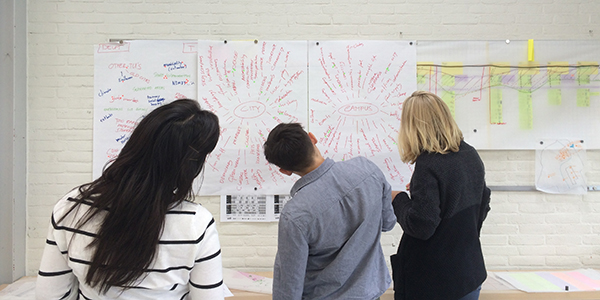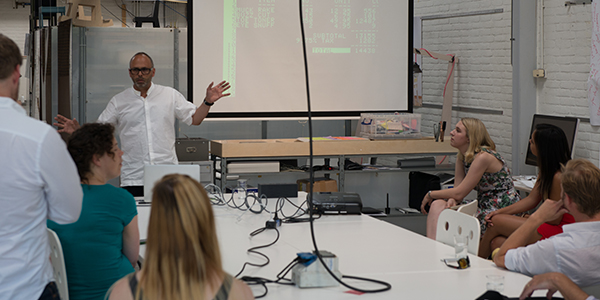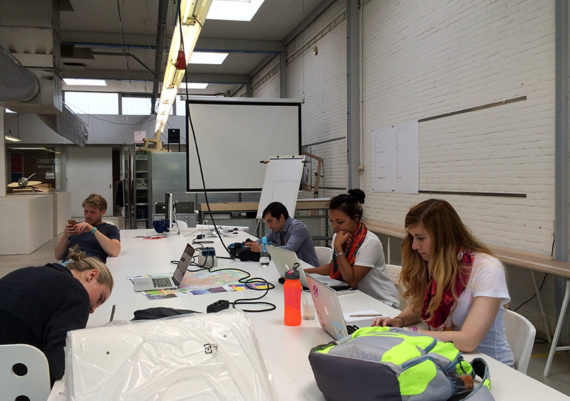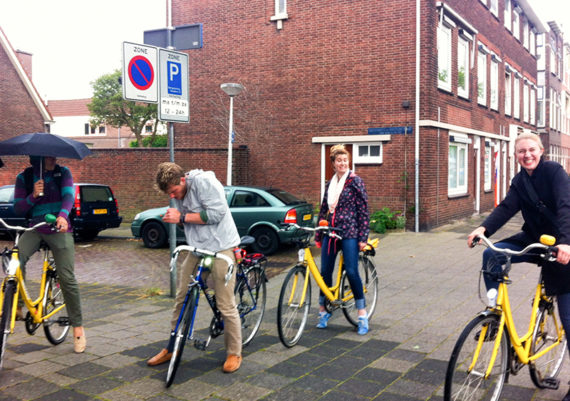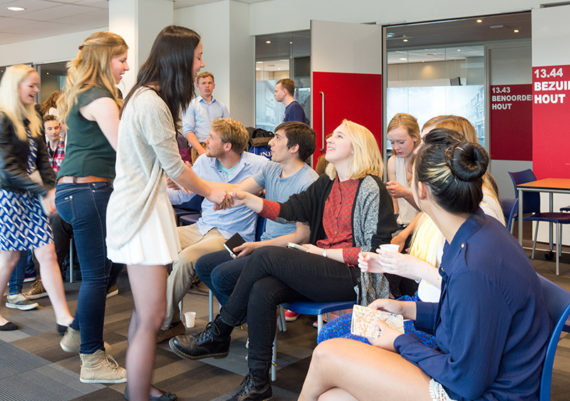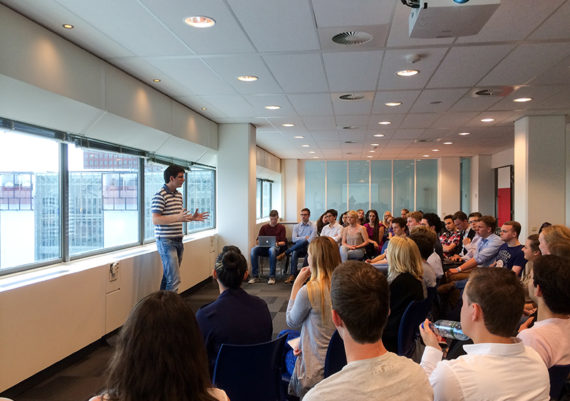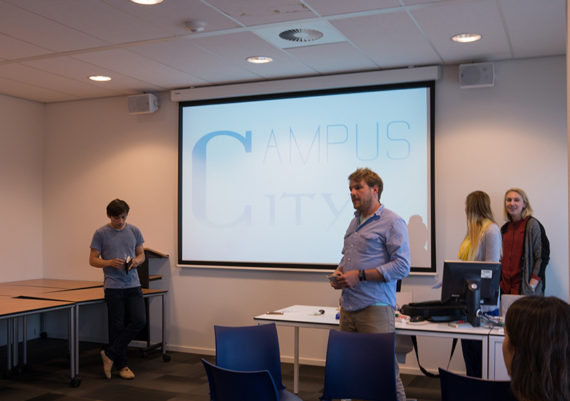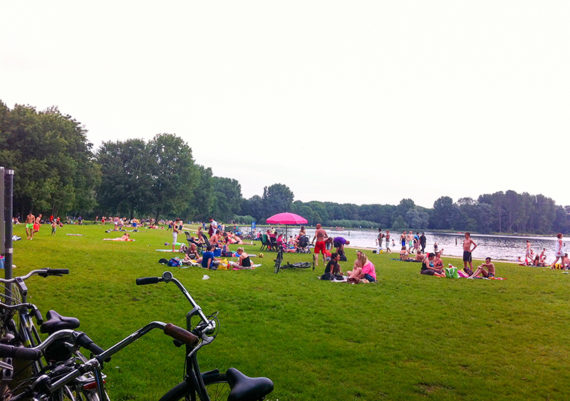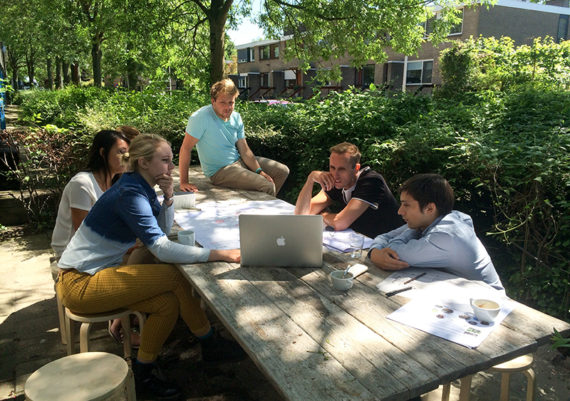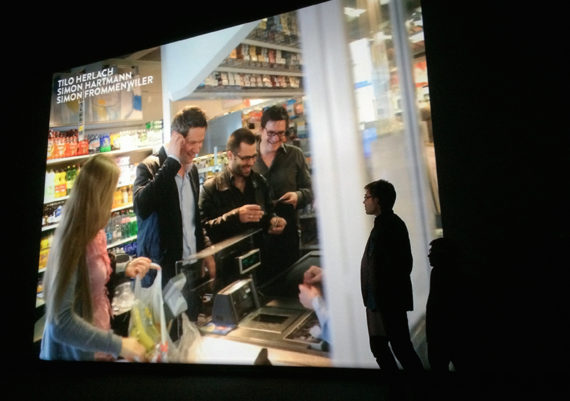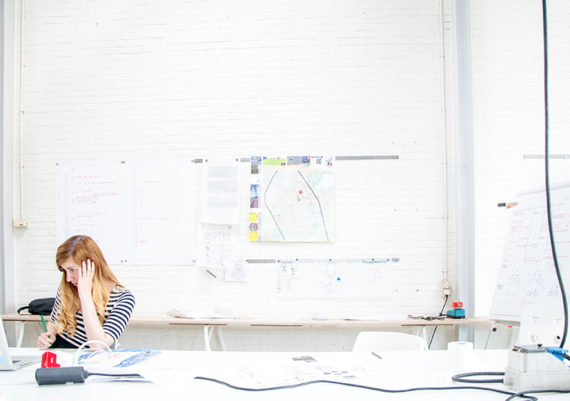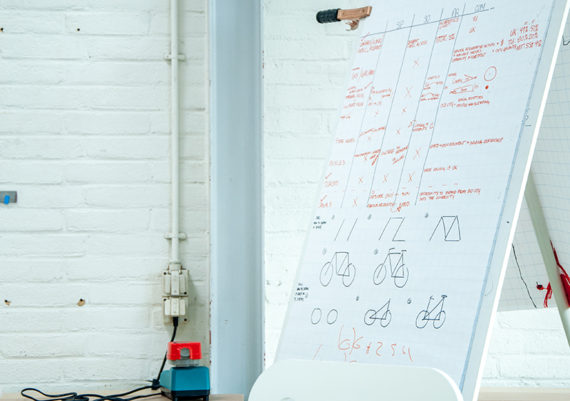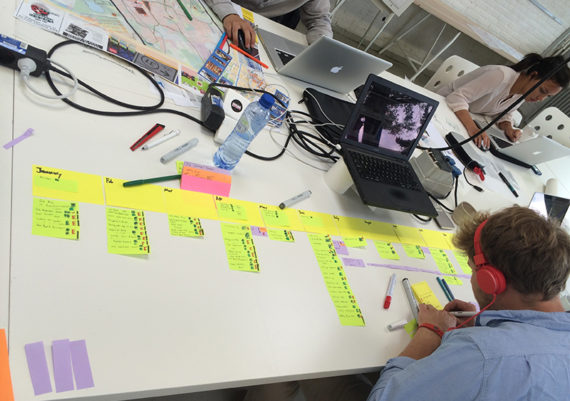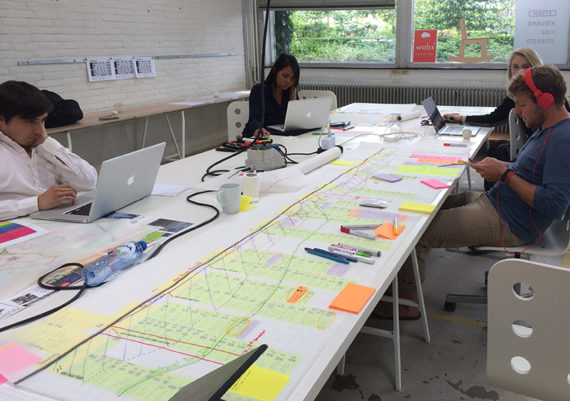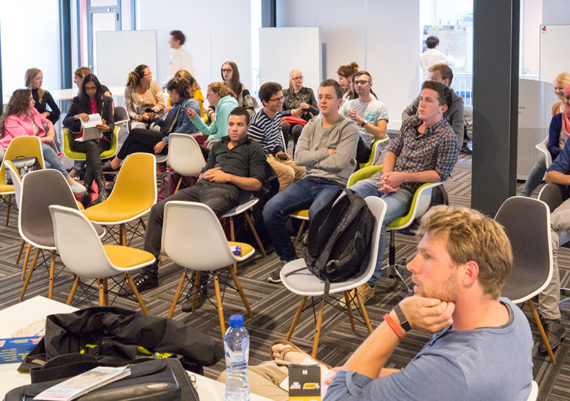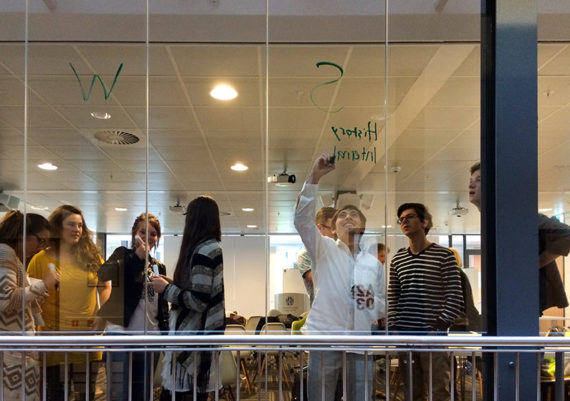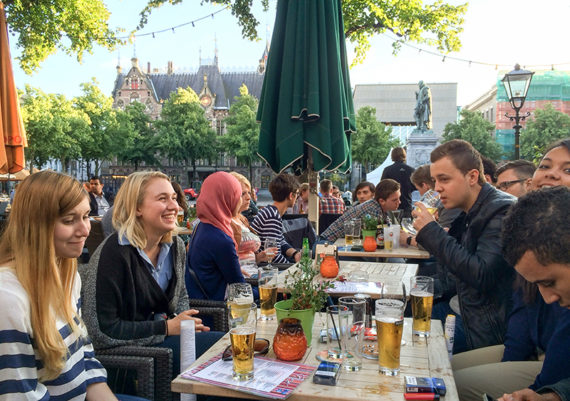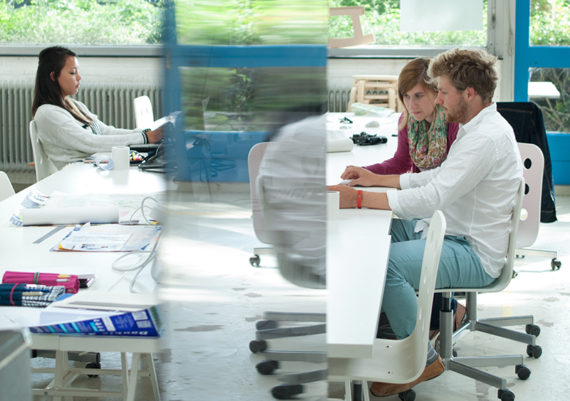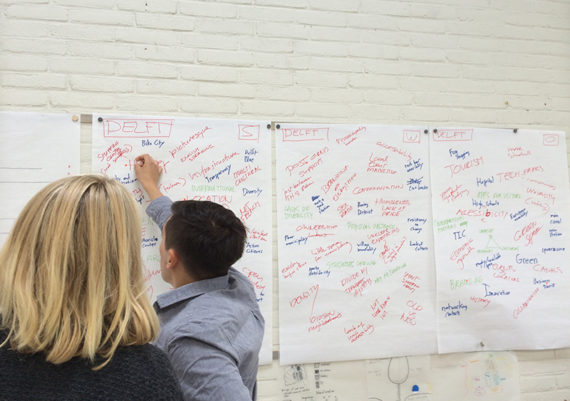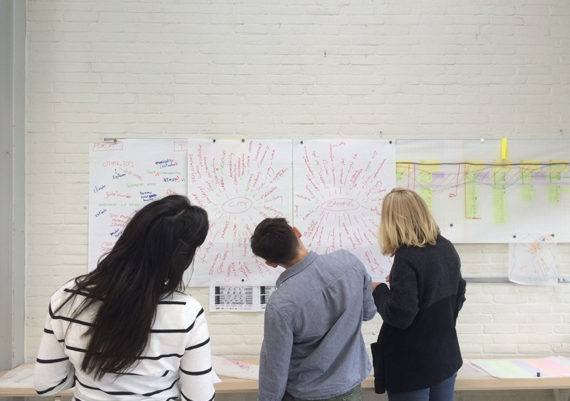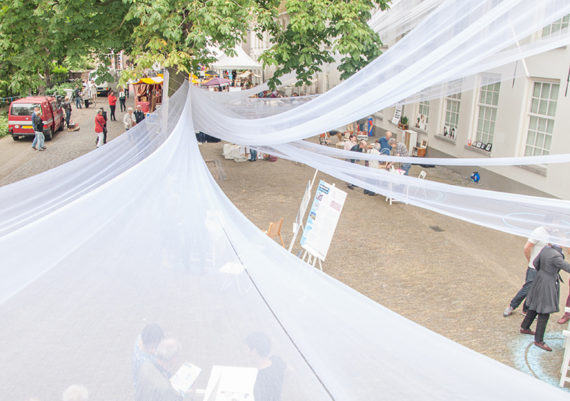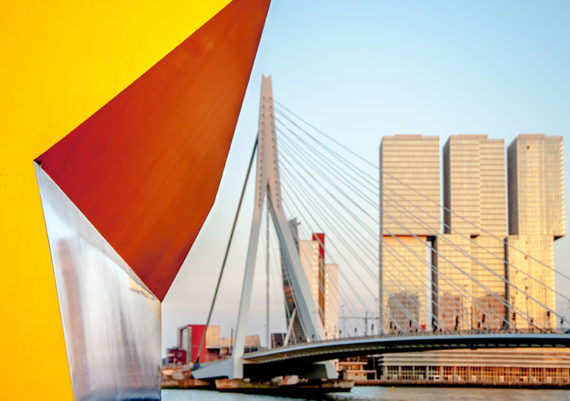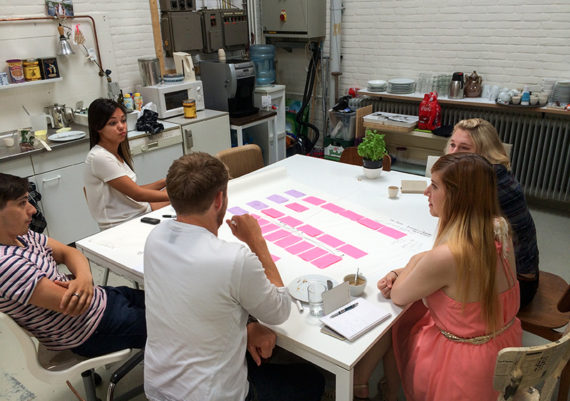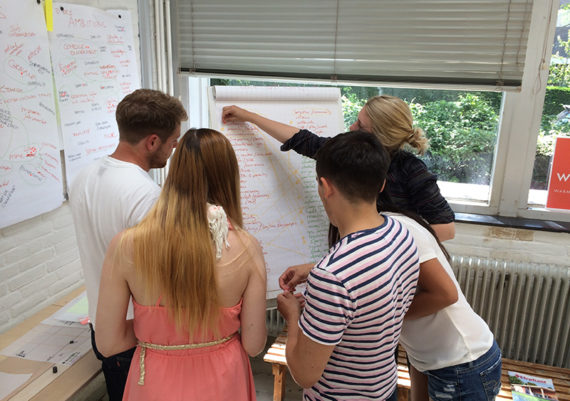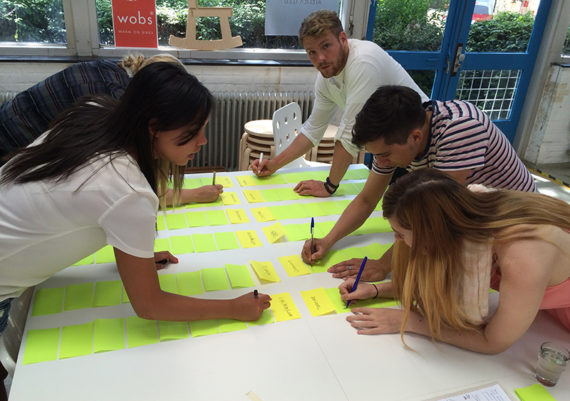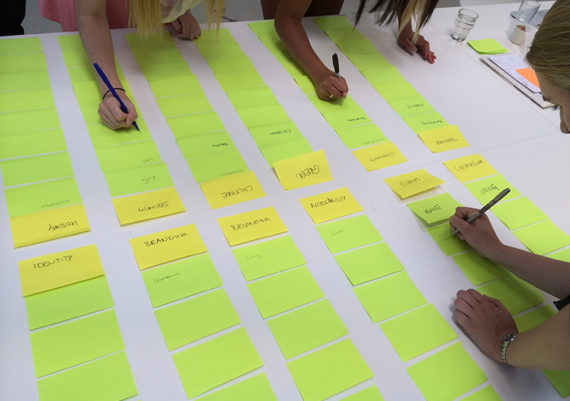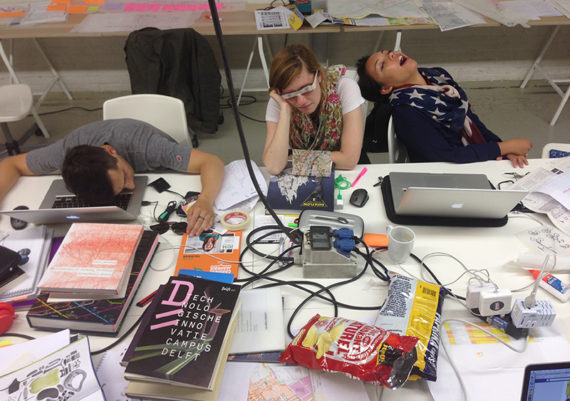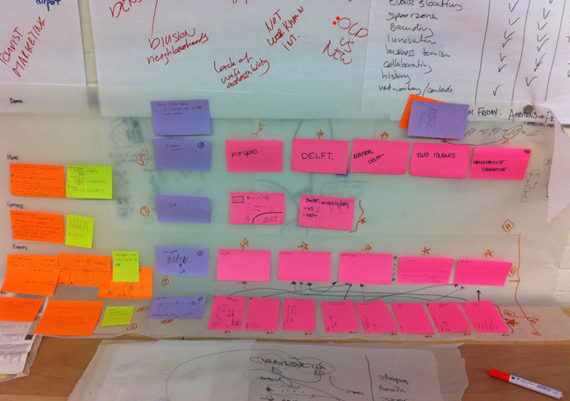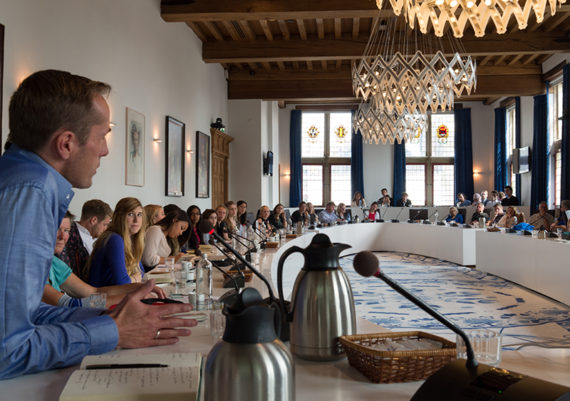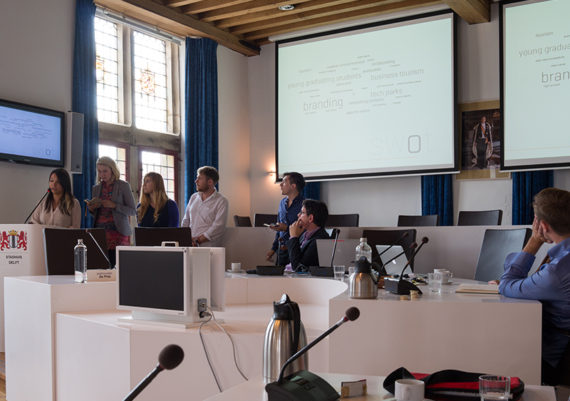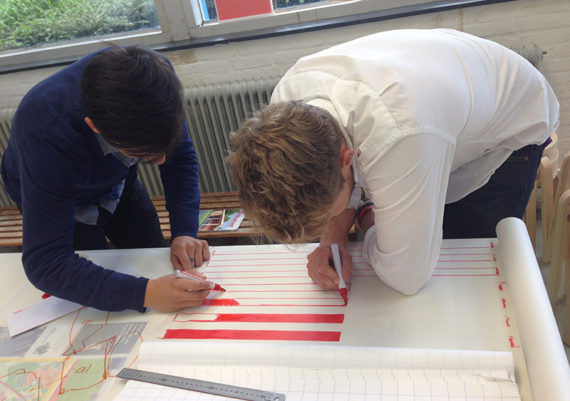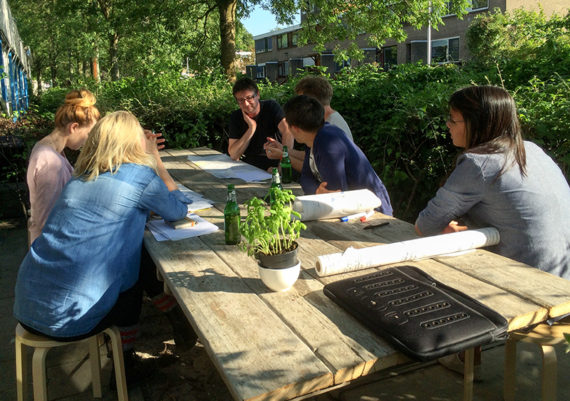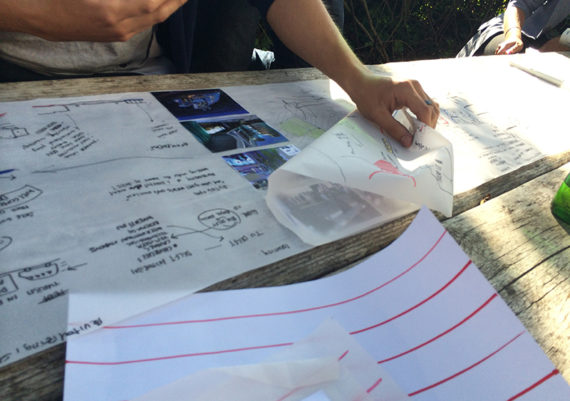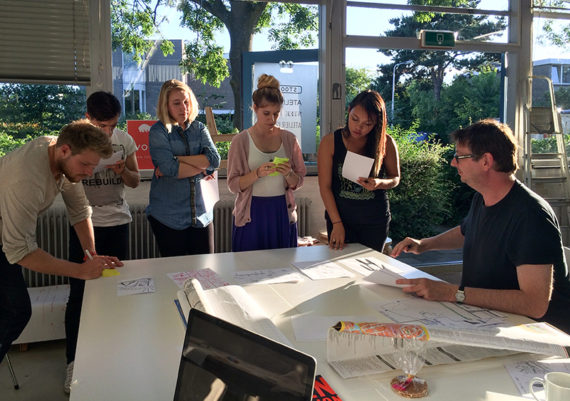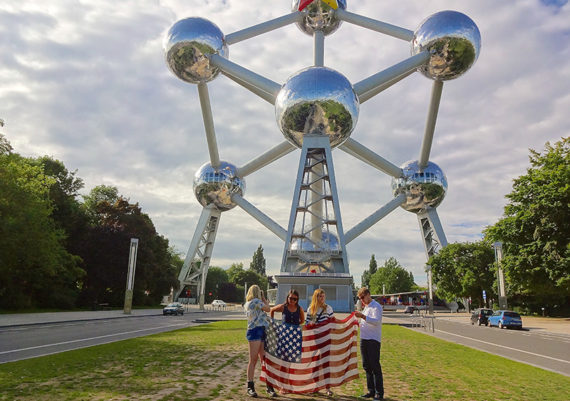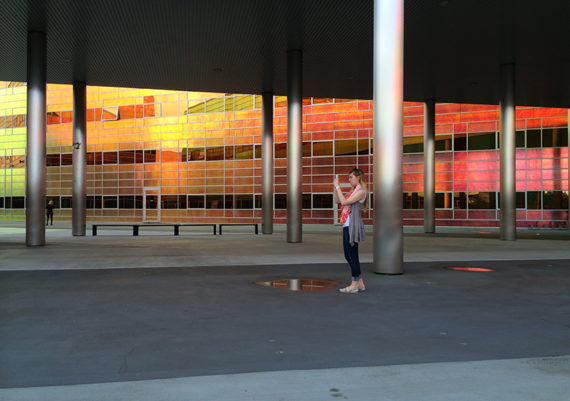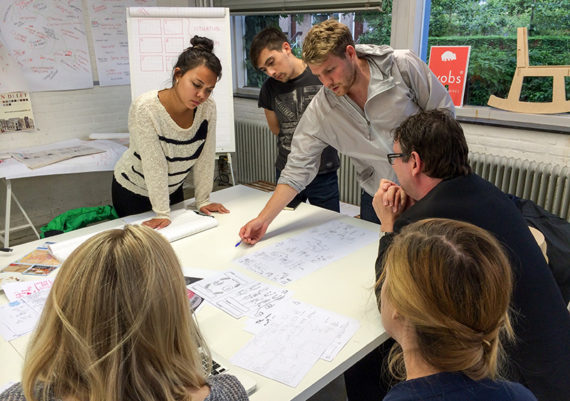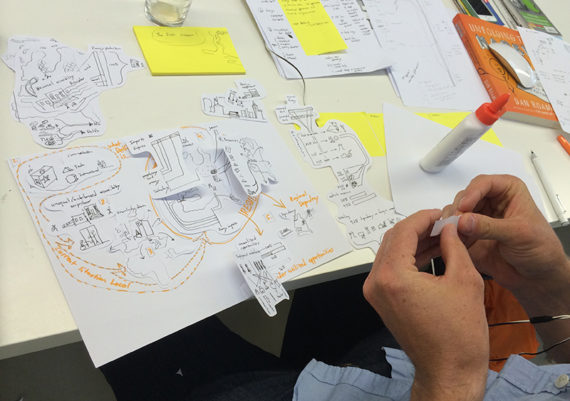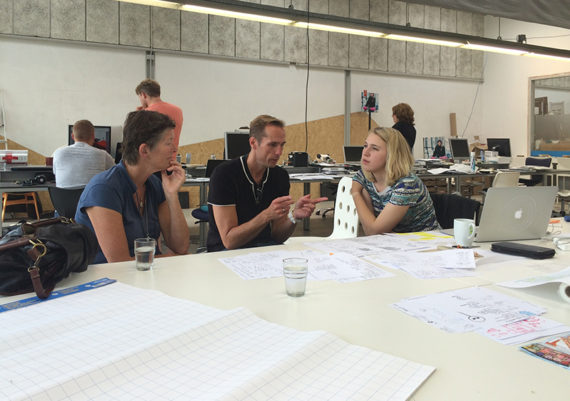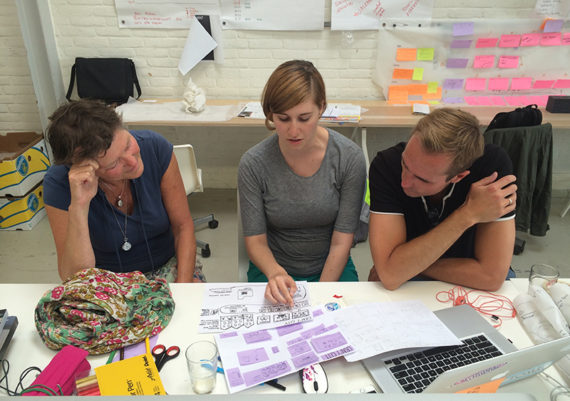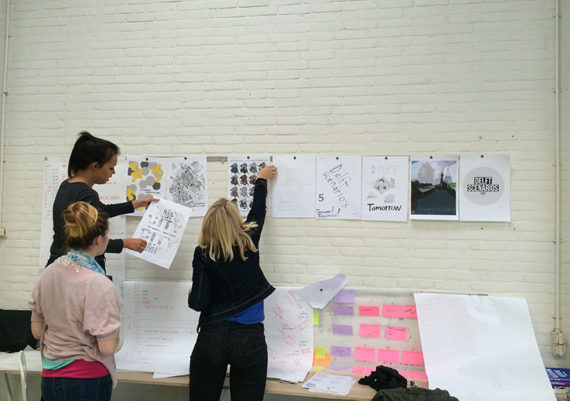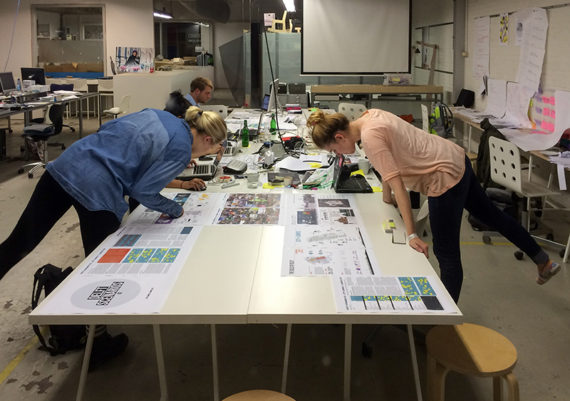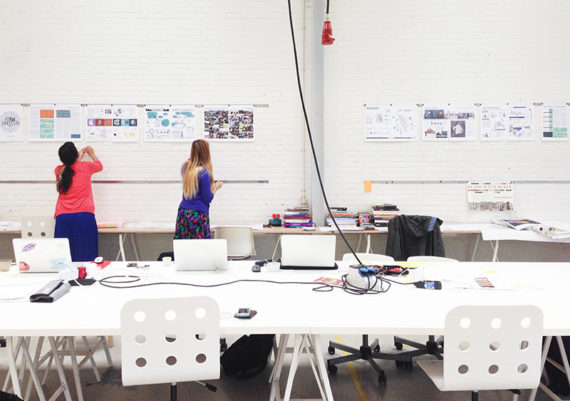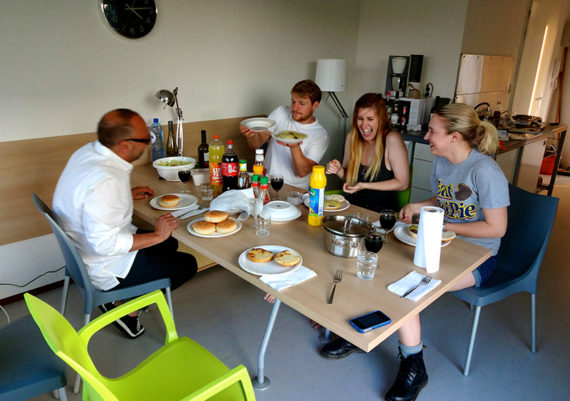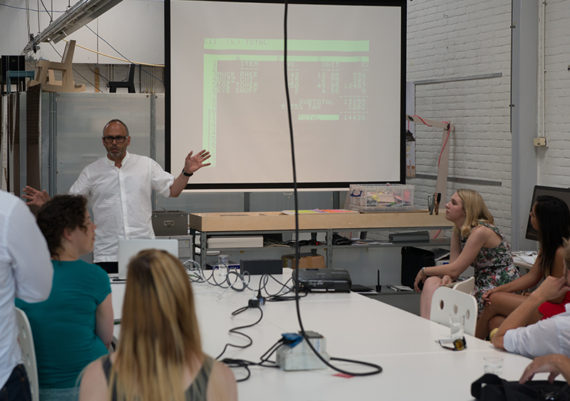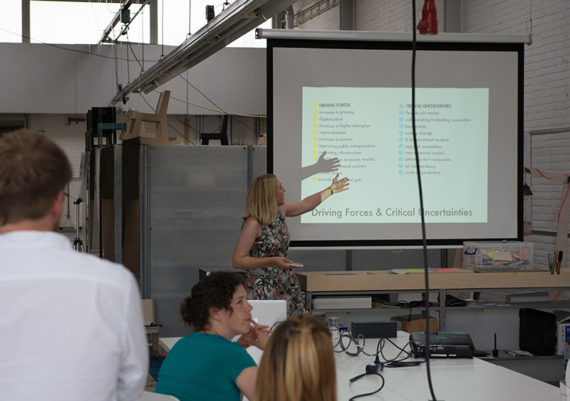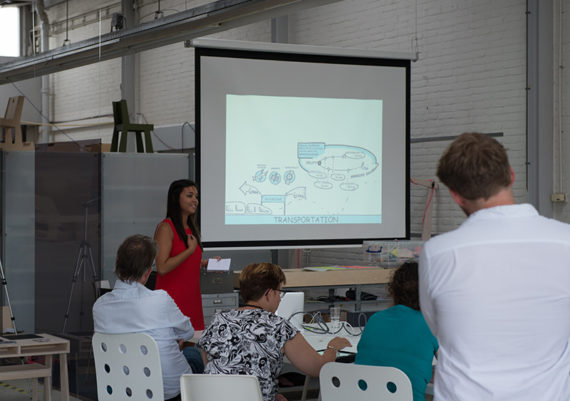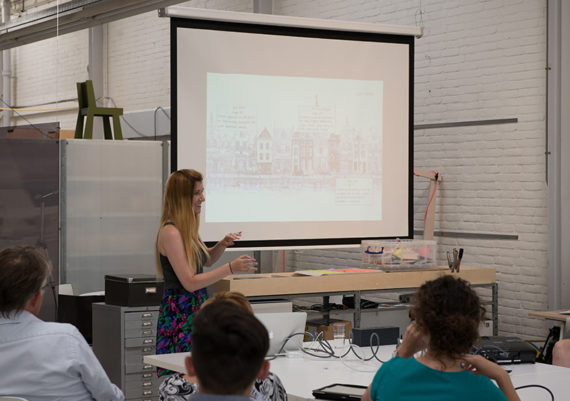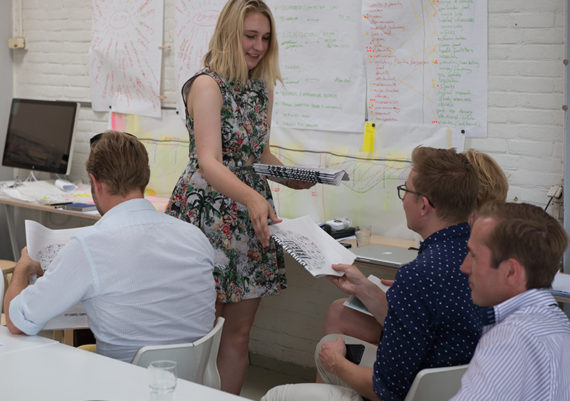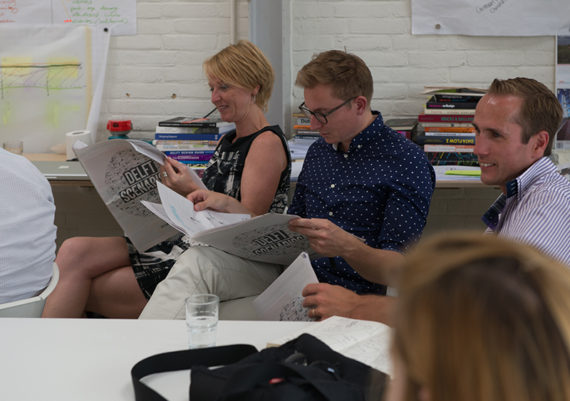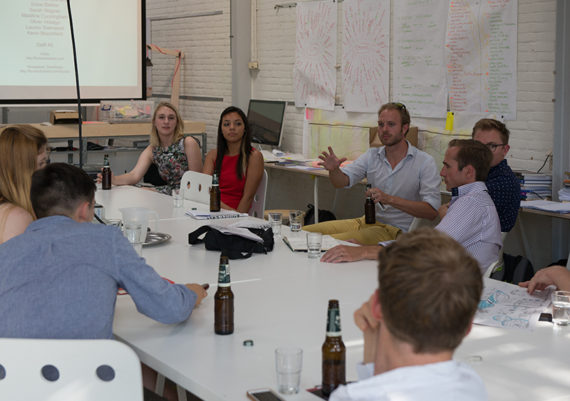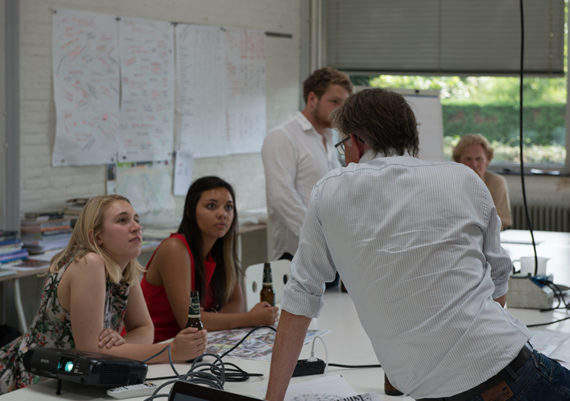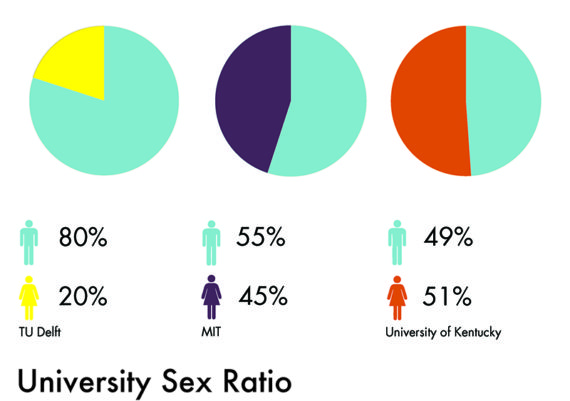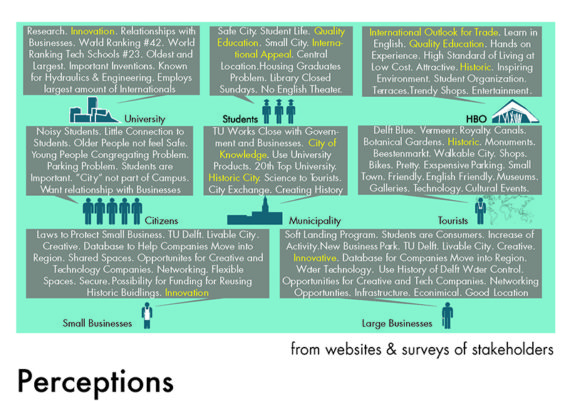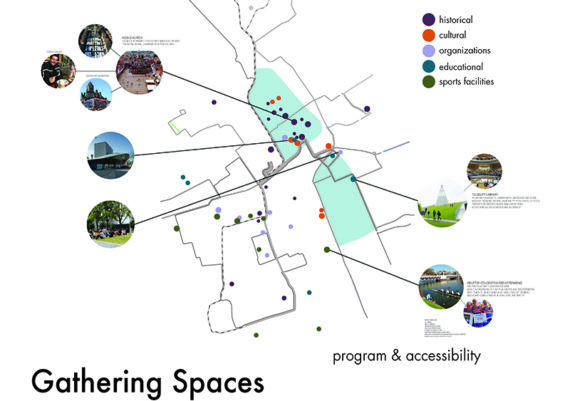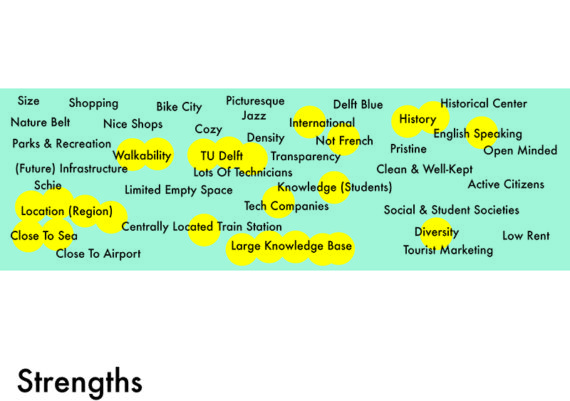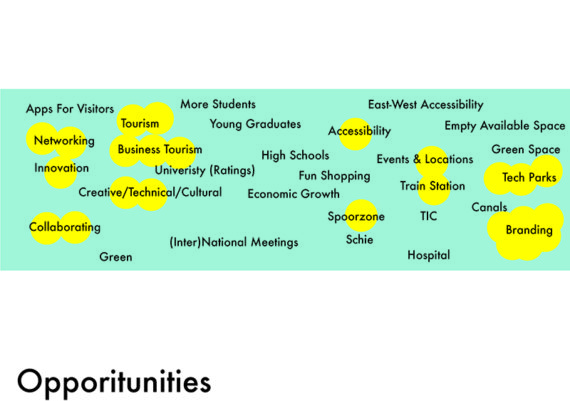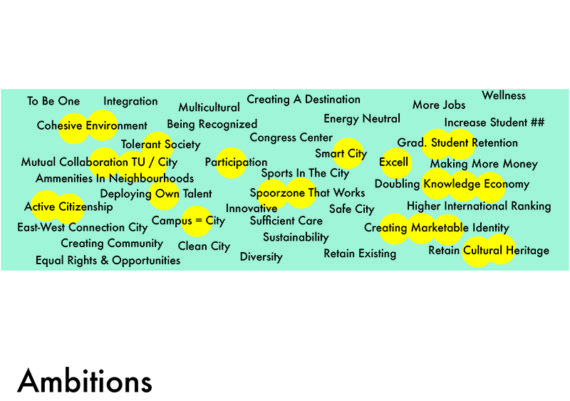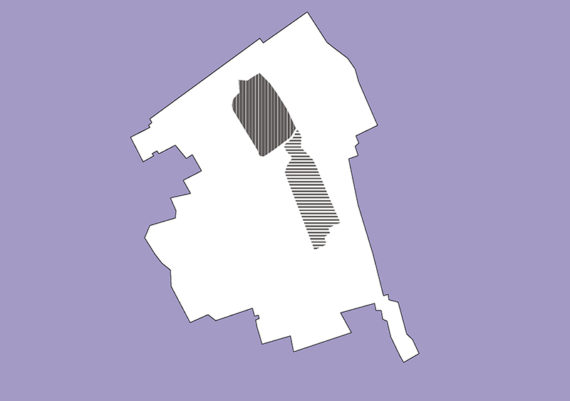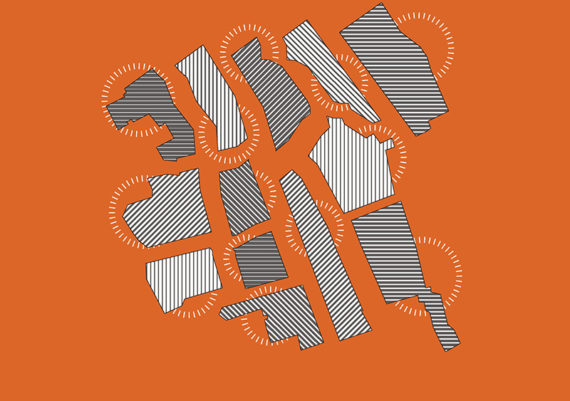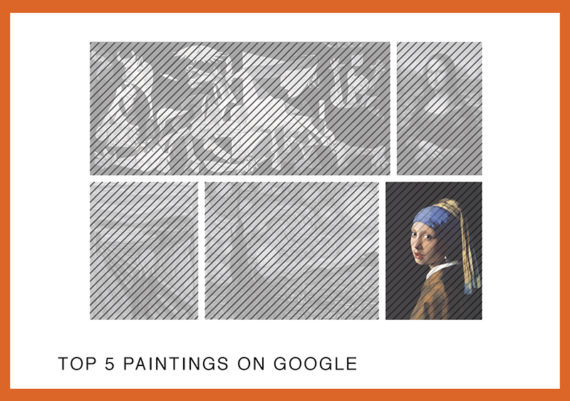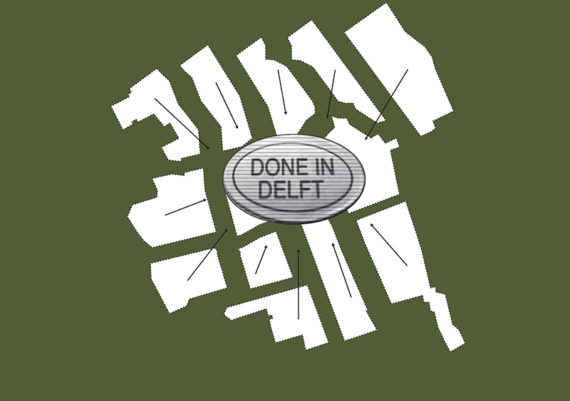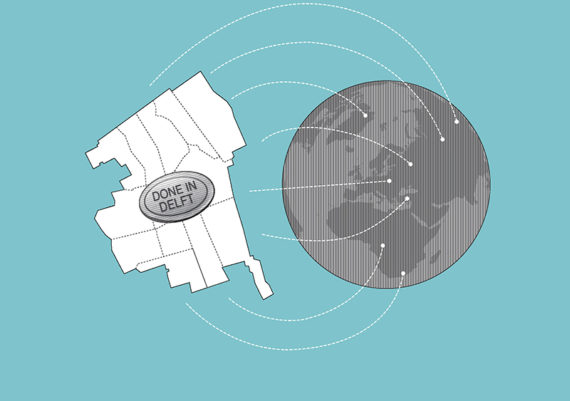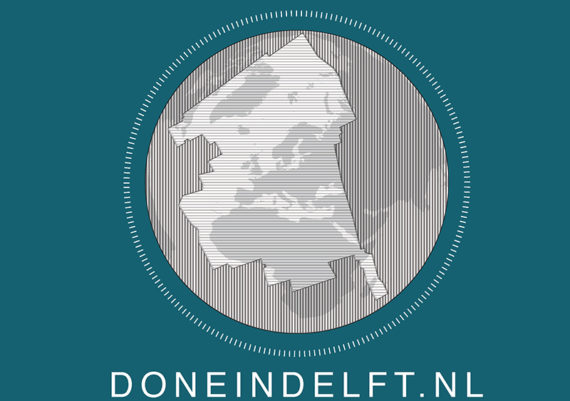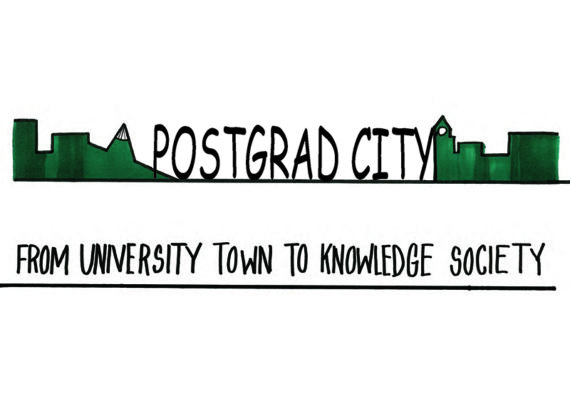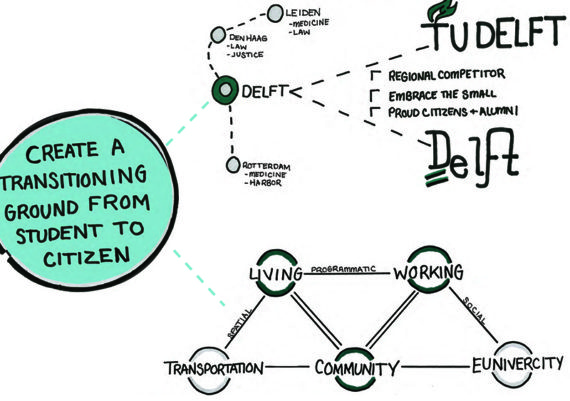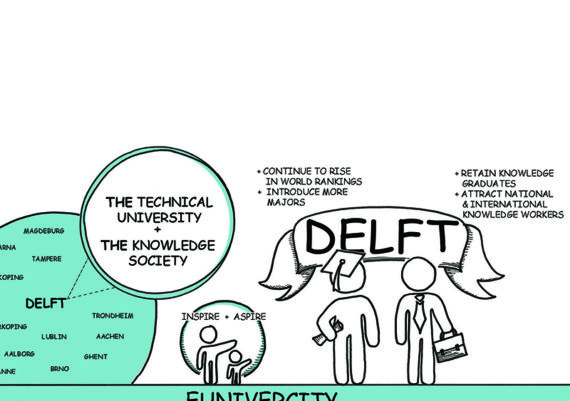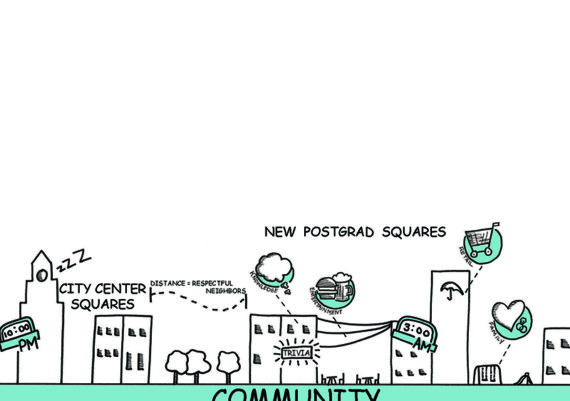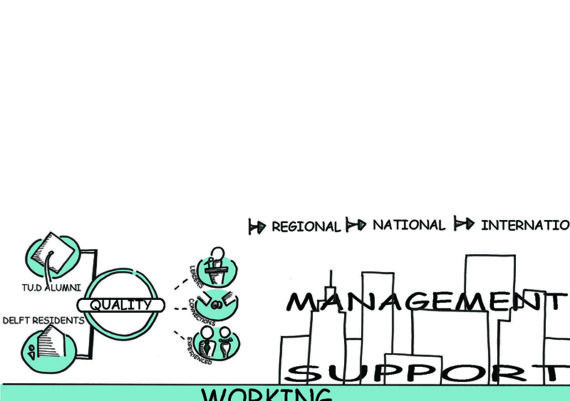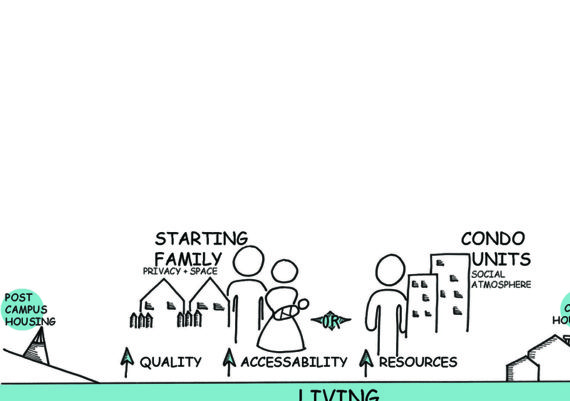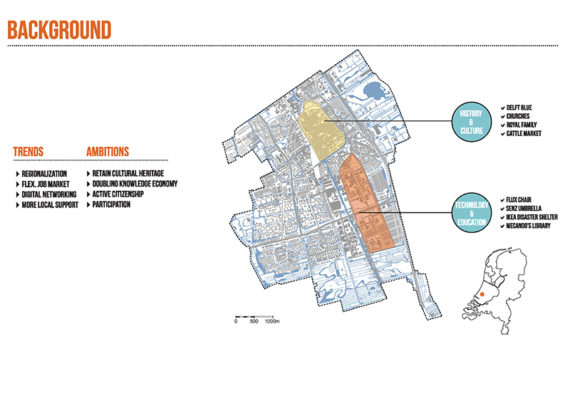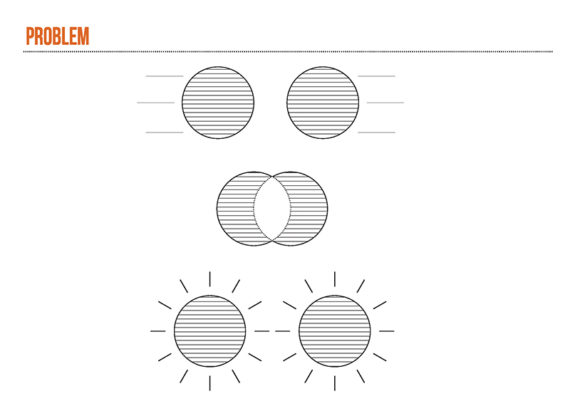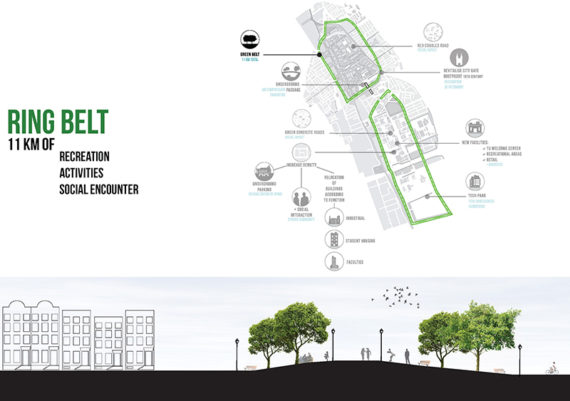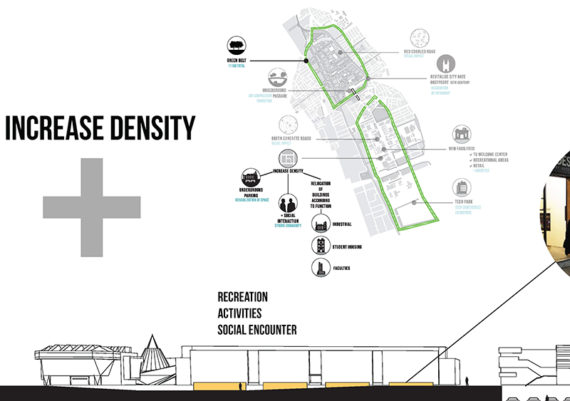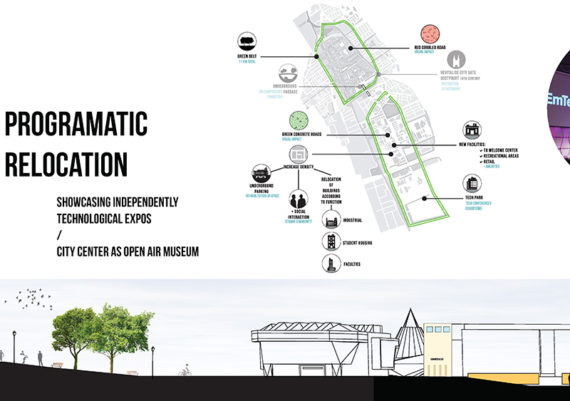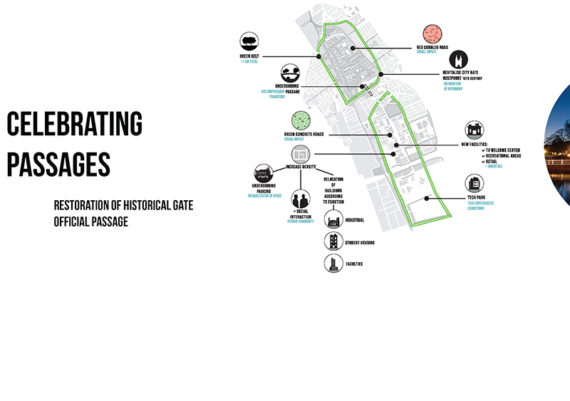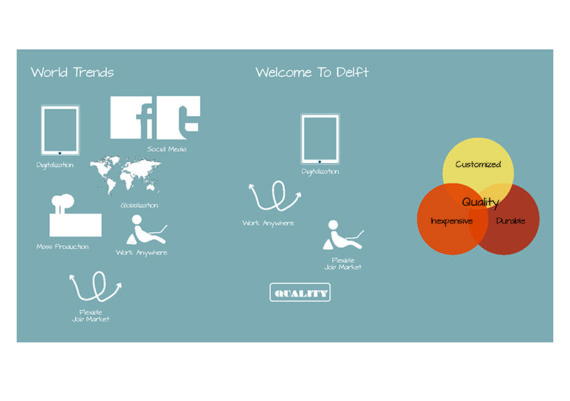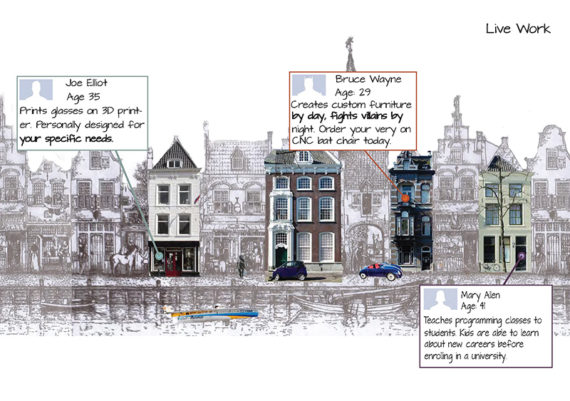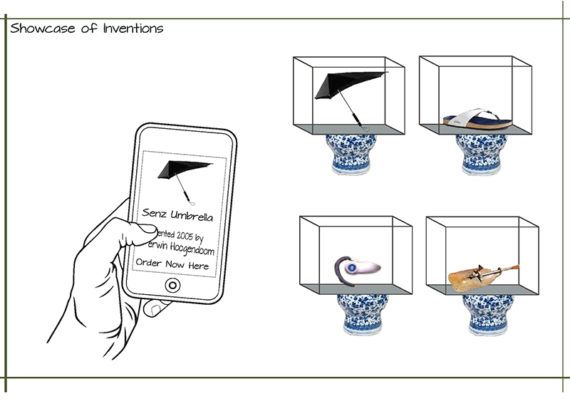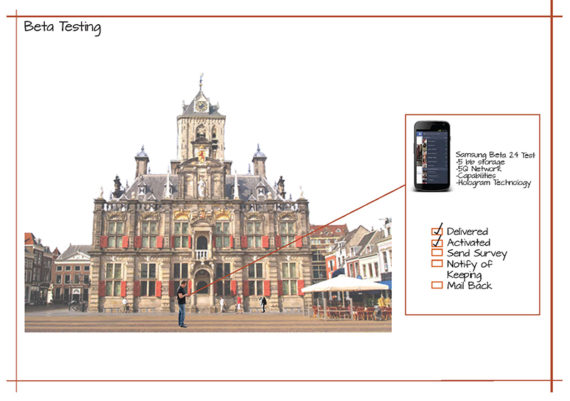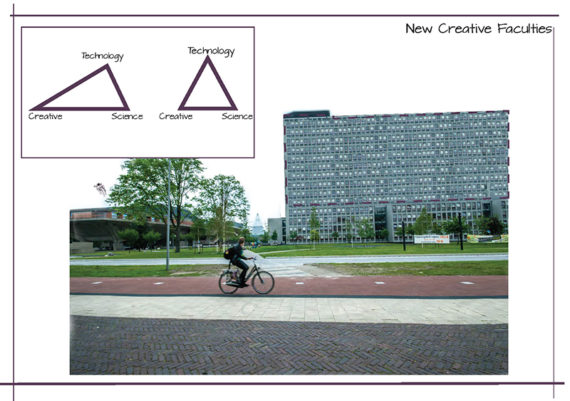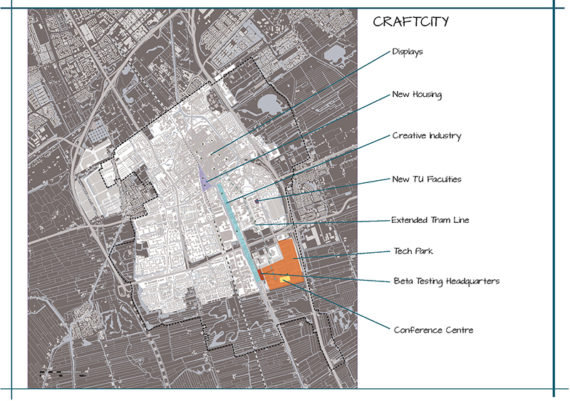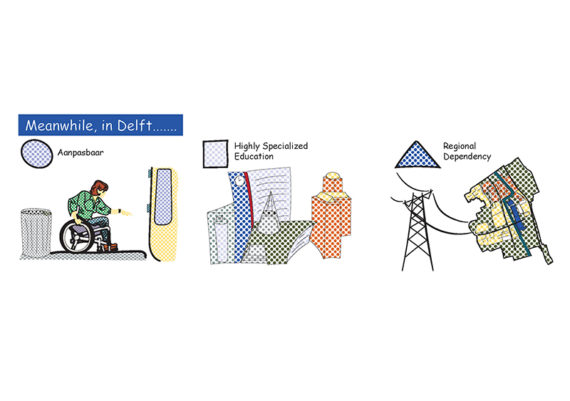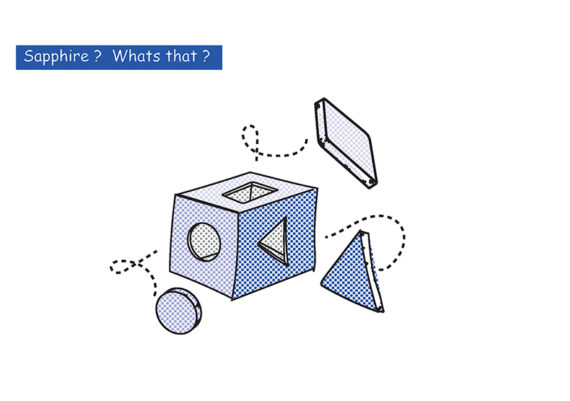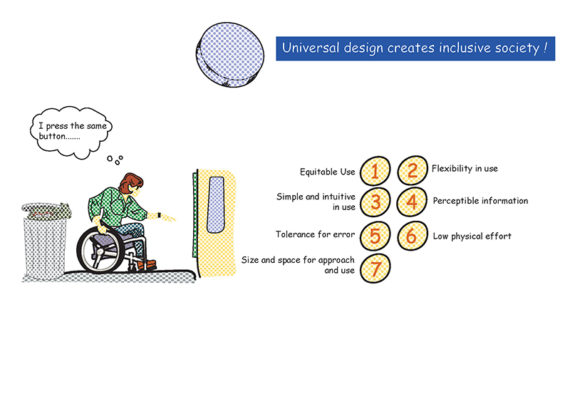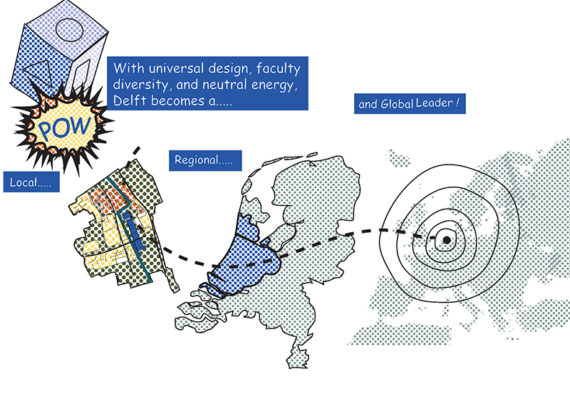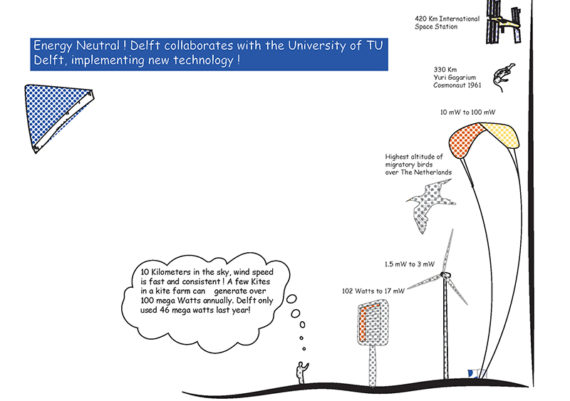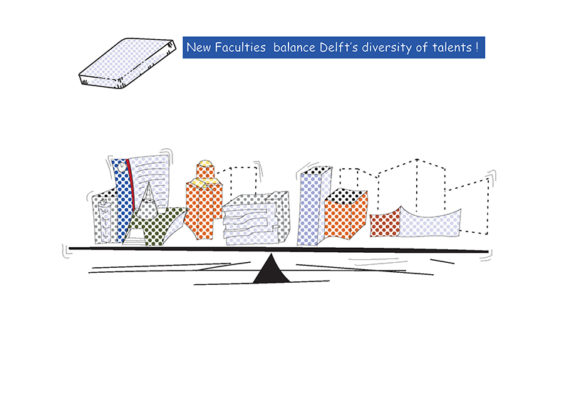citycampuscampuscity
Delft Scenarios 02 CityCampusSampusCity is a research and design studio investigating the ambitions of and plausible futures for Delft Municipality. It focuses on developing scenarios and strategic designs that address the ambition of Delft Municipality to enlarge and intensify the relation between the city and the university campus. This cross-faculty project will investigate network management strategies for the local government (Leiden University) as well as five extrene scenarios (University of Kentucky).
2014
initiative, concept, format, coordination & management, instructing, publication
CityCampusCampusCity
DESIGN THINKING
future scenarios and network governance
Cities all over the world are reinventing their positions, either driven by changes in national policies decentralizing governance or reacting to the reality of competition and collaboration on subjects such as economy, services or the changing number of inhabitants. Often this is generated out of a desire or perceived necessity to respond to the changing ambitions of industries and citizens. One only has to think of notions like ‘Creative Cities’, ‘Metropolitan Regions’, ‘City Branding’ and ‘Self-regulation’ to understand that traditional ways to organize one’s community will fail to adequately address these emerging ambitions.
There is a need to improve decision-making and policy processes just as much as there is a need to service and renew spatial structures as demands are changing. One can state that changes in urban developments are driven by changes in population and their needs. Energy and sustainability issues have become a common consciousness deserving appropriate response in terms of policy and spatial planning. One can easily add to these examples.
These current challenges are becoming more complex and interwoven. Fed by a large number of sometimes contradictory and definitely various ambitions, they need to be addressed in a manner that justifies all involved. Changes are good. And by nature, changes are complex and difficult to implement. They are disruptive and evoke resistance. Change needs community, involvement, and commitment. The more complex a challenge is, the more actors or stakeholders need to be involved, and the more inadequate traditional means for development becomes.
One needs to build robust solutions, or better, robust environments and contexts. Solutions tend to address current situations incapable of adjusting to changing realities. It is exactly those rapidly changing realities – economical, political and social – that have led to the realization that innovation in governance and policymaking processes is crucial for a city to keep operating successfully. Intelligent ways to address and implement developments are needed. Intelligent in terms of creating efficient and economically viable solutions for both processes and implementations; intelligent as in being informed by relevant parties.
Current notions on ‘Design Thinking’ move towards inclusive and collaborative processes. These are aimed at efficiently producing inventories and analyses of stakeholders and context. Organizing effective prototyping presents essentially different strategic options and scenarios. Finally and foremost, these processes create collaborative structures for professionals, administrators and citizens.
STUDIO
During the past years the municipality has conducted several studies into aspects of Delft as a knowledge city. Focussing on higher educated people, both students attending university and the colleges of higher vocational education (HBO), as well as knowledge workers who work for tech companies and knowledge institutions. Essential questions that surface are: what is the definition of a knowledge worker? What are the needs of higher educated people and how can you provide in those needs as a city? Although much is known about the topic, the municipality wants more input on the specific issue of their ‘City=Campus, Campus=City’ ambition. How can you further increase the attractiveness of Delft for higher educated people? How do you attract more knowledge workers? What is the best way to organize the network of stakeholders to accomplish shared goals?
Delft Scenarios 02 is a casestudy based research program investigating the abovementioned issue. Public administration students from Leiden University and architecture students from the University of Kentucky took on the challenge to research potential interventions for the municipality of Delft in the context of ‘City=Campus, Campus=City’.
The Leiden students started by conducting a series of interviews with representatives of various stakeholder groups in the city of Delft, including the municipaity itself. This inventory of ambitions, foresights and perceptions led to a number of SWOT-analyses, both from the perspective of the individual stakeholders as well as on the ‘macro level’ of the ‘City=Campus, Campus=City’ context. Subsequently these results were adopted by the students of the University of Kentucky to investigate further. Scenario specific information was collected and implemented in more precise descriptions of plausible futures for Delft. The scenarios present extreme positions aimed to unveil current conditions and realistic future situations. They operate as context to test current plans on their robustness and adaptability to remainsignificant regardless of how the future actually unfolds.
Research & Analyses
Delft is profiling itself as a ‘knowledge city’ and one of the basic elements thereof is the project City=Campus/Campus=City. The ambition is to (better) integrate all that is happening on the campus with the city, and vice versa. To connect stakeholders, facilitate participation of people in Delft, and to stimulate innovation. However, in light of the difficult economic circumstances, changing socio-demographic characteristics, fast-changing technological innovations, ever increasing globalization and competition and many other relevant (global) developments, this is not an easy task.
The municipality is well aware of the fact that it is a challenging ambition. Therefore, people working in and around city hall have been very active during the past years in developing ideas and plans to further improve the profiling of Delft. It is very important to collaborate with all stakeholders within the wide ‘knowledge network’ in order to reach the goals. Each of these stakeholders possesses unique expert knowledge and contributes –in one way or the other– to Delft as a city of participation and innovation.
Stakeholders
We first identified the stakeholders involved. This way, we made a start with unraveling the complex network of actors that were active –be it direct or in an more indirect manner– within these spheres. Given the limited amount of time and resources it was necessary to make a selection of stakeholders who were actually going to be contacted and interviewed by the students. The research teams therefore focused on specific stakeholders: local entrepreneurs, students, organizations in civil society (culture, sports, etc.), TU University, other knowledge platforms (Tech Delta and Medical Delta), people living and working in Delft, and –last but not least– the municipality itself.
The student research teams devised their semi-structured interviews. Once this was done, it was now time to actually go out in the field to gather the information from the various stakeholders. After numerous interviews and surveys with (international) bachelor and master students, graduated students, entrepreneurs, culture and sports associations, housing corporations, university, and the municipality, ideas on the strengths and weaknesses of Delft as a knowledge city gradually took shape. Interviewing these people about their vision on possible developments in their field in the next twenty or thirty years time led to interesting insights.
During plenary sessions with all research teams, these main findings were shared and we were able to identify the common challenges and opportunities. It enabled us to construct a SWOT and analyze the main strengths and weaknesses, opportunities and threats for each individual stakeholder, as well as a SWOT for the city of Delft as a whole. This way we could clarify the complex reality and it enabled us to make a structured analysis of the different stakeholders/organizations and their environment.
Furthermore, it forms a crucial stepping stone towards the analysis of critical uncertainties and driving forces, and eventually to the formulation of scenarios and the strategic advice, which is the other main ingredient of this newspaper. We will now discuss the SWOT-analysis for the city of Delft as a whole in more detail below.
SWOT ANALYSES
Strengths
A strength commonly mentioned by the research teams is the presence of many diverse educational institutions, varying from MBO to HBO to TU, to other knowledge organizations. Initiatives like the Medical Delta and Tech Delta are fine examples of the cooperation between these kinds of organizations. One of the research groups borrowed a catchphrase from one of the interviewees to describe the strength of this clustering of institutions: the TU develops theoretical ideas, HBO translates these abstract ideas into more concrete solutions, and the MBO unfurls activities to make and create the actual products. This could become an important part of the concept of what the ‘knowlegde city’ could be. This is a particular strength of Delft as a whole, having the capacity, having the strength, to rely on a strong educational infrastructure specializing in technical knowledge.
The presence of students with varying expertise and backgrounds that attend these knowledge institutions is therefore also considered by many stakeholders as a particular strength of Delft. As one group puts it: Delft can be the place where new products are developed, designed, produced and consumed. This way it can become a truly innovative city that harbors and retains knowledge. Delft can also use this to fulfill its ambition to double the size of the knowledge economy.
People are generally very positive about Delft. In the surveys amongst workers, students and other inhabitants of Delft an average grade between 7 and 8 was awarded to the city; a score to be proud of. Furthermore, the geographic location of the city is considered a considerable strength. Being situated at a strategic location within a large metropolitan area (the Randstad), functioning as a central hub for industry and businesses, research and development, and tourism (to name just a few) is a major strength of the city. Also, the large presence of social housing is considered to be a positive aspect of the city. The housing corporations own approximately 42% of the housing in the city and provide social housing for roughly 50% of the students. And –last but not least– the historical identity of the city is mentioned and acknowledged as a definite strength by the interviewees. People have positive associations with Delft as being a culturally worthwhile place with a rich and interesting history.
Weaknesses
Students were also ask to probe stakeholders to identify possible weaknesses, so that we would be able to sketch a critical –albeit limited– ‘state of the city’. After all, being realistic about ones shortcomings is a starting point for building sensible solutions for the future. Having said that, one of the weaknesses that was identified by the research teams was the perceived disparity between ‘students and citizens’. Without commenting here on what exactly entails the difference between a student and a citizen, we should be frank about the perception of the relation between student and citizen. We explicitly use the word perception since it is not as much an objectifiable fact, but more a belief. It’s something which lies in the eye of the beholder. However, we do know from the scientific literature that perceived reality can be as real as ‘actual’ reality, in the sense that it can/will guide people in their conscious behavior. Therefore, we should include it in our SWOT-analysis. What is furthermore mentioned as shortcomings is the lack of space to expand. Besides some limited options to further expand the city and realize new housing projects in other locations, there is not much space. This is something which we would have to treat as given, and it steers the search for possible future scenarios.
Threats
After having discussed the strengths and weaknesses, we can now turn to the chances and challenges that face the city of Delft. For an important part this has to do with the internal weaknesses of the city, but for the other part the chances and challenges are also heavily influenced by external developments outside the municipality. Opportunities and threats permeate the boundaries between the internal and external environments of the city.
One of the risks is the use of relatively short-term strategies that change every now and then. This creates a situation in which no real long term commitment is asked from each actor involved, raising chances of parties dropping out or not even committing themselves at all. Or, at least not ‘seducing’ parties to actively search for new partnerships with other parties. A real threat –which is connected in a sense to the previous threat– is also posed by the strong regional competition between different Dutch regions, between European regions and regions in an international setting. And obviously, the limited budget also forms a risk, both for short-term and long-term policies. Also, some research teams identified a (perceived) ‘gap’ between the city and the campus. This gap is physical, illustrated by the relative poor connectivity of the campus area to the rest of the city, although measures are undertaken to improve this. The gap is also psychological, meaning that people perceive a difference between the campus and the city, which is not necessarily based on ‘rational facts’. And this is connected with the gap between citizens and students, already mentioned and explained in the section on weaknesses. One also has to be careful of another gap, namely that of the possible separation between various departments within the municipality. If the right hand does not know what the left is doing, then you run the risk of becoming inefficient. The groups investigating the strategic level and the project level within the municipality did not observe such a big separation, but they did. One possible solution is to start seeing the internal municipal organization as a network in which people have to share each other’s agendas and ideas in order to accomplish coordinated actions as a whole (see also the strategic advice below). Lastly, the lack of amenities and the (danger of) departing tech companies are also considered to be possible threats to the city.
Opportunities
What are the most important opportunities? One of the main conclusions is that there is much to gain from good communication and collaboration. For instance, on the (further) development of tech parks and the use of incubators there are many possibilities. This is also where the role of Delft as a strong regional player is emphasized as a possible opportunity. A clear and bold regional identity attracts many tech companies, students and other businesses.
The survey that has been conducted by the group that investigated the student population in Delft as a stakeholder group identified some clear opportunities for Delft. One finds that connection of the three universities in Delft, Rotterdam and Leiden is mentioned as an important opportunity. To round off, one of the main assets of Delft is a prospering creative industry. However, there is also a lot of traditional economic activity in and around the city. The group that investigated the local entrepreneurs believe that there are lots of opportunities here for local retailers and other entrepreneurs to show creative and innovative products in their stores. For example, local businessmen could display exclusive ‘offline’ products in their stores that people would want to come and see –and buy! This way they can circumvent the possible threat that is posed by the digitization and the increasing use of online shopping. Other activities would benefit as well, for example the tourist sector.
STRATEGIC ADVICE
Networks are of vital importance. They can be flexible and efficient, but at the same time they are vulnerable and can be volatile. Especially ‘soft’ networks, being personal contacts with people and stakeholders in the city, must not be underestimated. Many stakeholders indicate that they want to cooperate more intensively with the municipality and with other relevant stakeholders. Based on the interviews, our own research and interpretation we have come up with the following strategic advice:
– Strengthen existing ties and networks and be complementary. One example is the LDE cooperation: already some forms of cooperation are there. As one of the interviewees suggested: start a university college in Delft to attract excellent (international) students. Work together with other university colleges in Rotterdam and Leiden, as well as the other educational and research programs. Adopt a bottom-up strategy, whereby partners cooperate on concrete projects. This way mutual understanding and trust can grow and can provide a strong fundament for more extensive cooperation.
– Stimulate and facilitate networks. The municipality can (and should) play a role as an active facilitator of the various networks in the city. This does not imply spending huge amounts of money, but it requires an intelligent approach to connect different networks of actors.
– Connect and integrate different networks. Start by organizing a conference to bring together all relevant stakeholders and discuss future scenarios of Delft in a critical but constructive way. What strategic choices are there to be made? How do we cooperate now and in the future? Make sure it is a sincere collaborative effort and prohibit any ‘hijacking’ of the process by one or a few players. Having broad support is crucial at all times within the process.
– Following from the abovementioned points: let each actor involved map out the contacts they have in their day-to-day practice. Who do they talk to? Who do they have to deal with? Who is connected to who and in what way? Those sort of questions. When all contacts are then displayed together, it becomes apparent what the network looks like. Possible ‘blind spots’ can be identified and new contacts and possible collaborations can be ‘discovered’. Although maybe sounding a bit too straightforward, this effort can lead to a surprising outcome.
– Organize the internal municipal network. Broadly communicate the ‘Why’ of the project City Campus / Campus City. The ‘Why’ must be infused in all layers within the municipal organization. Although this takes some time and requires clever coordination, it yields many benefits.
– Monitor networks, now and in the future. Almost by nature networks are vulnerable. Most of the time they are relatively easy established, but run the risk of crumbling when not paid enough attention. Networks are a hybrid, unique form of cooperation, neither guided by principles of the market or the hierarchy. Networks require a different approach a different way of ‘handling’.
– Be clear in your message, and be frank about your goals and ambitions. Although the concept of knowledge city is an appealing one, it is crucial to have a clear conceptualization, and to express this clearly when communicating with the outside world. However, this does not imply that the municipality should define what knowledge city is. This should be a collective effort of all relevant stakeholders involved. Shared understanding of a concept helps to formulate a coherent long term agenda to fulfill its goals and ambitions.
– Be careful about the separation between innovation and participation. Try to bring together municipal processes, as well as societal forces to make a strong combination of these two ambitions.
– Finally, the simple, but crucial advice: just pick up the phone, approach stakeholders and their constituencies and tap into that willingness to work together. Various stakeholders indicate that the first initiative to do this is at the side of the municipality. The municipality, as the centre of coordination, has an overview of the field and knows who should/can be involved.
Dirk-Jan Beemsterboer, Niels van den Berg, Ward Boltong, Leon Bosma, Lotte de Bruin,Bart Bussink, Laura Cappetti, Safiye Çifci, Umut Cosar, Colin Crooks, Joos Davina, Celess Datadin, Marijn Detiger, Anna Dogan, Laura Doornkamp, Dorinde van Eck, Suzanne Edelkamp, Fleur van den Elshout, Peter van Erk, Laura Filemon, Joshua de Freitas, Sterre de Geus, Marlot Groot Kormelink, Ariane de Haas, Mitchell de Jong, Jane Jurriaans, Meryem Kaaboun, Gunnar Koehler, Gerwin Koopman, Yorrin Koostra, Paula Leeflang, Nino Markos, Minke Oenema, Mojib Saree, Myrthe Stijns, Lili de Vries, Sascha van den Wall Bake, Sander Weenink, Anne Zekveld
participants University of Kentucky - College of Design
Madeline Cunningham, Kevin Bloomfield, Oliver Hidalgo, Lauren Townsend, Sarah Wagner
instructors
Siebe Bakker, Suzanne Greon, Ad van der Kouwe, Mark Reijnders
critics
Norbert de Leeuw, Bob van der Nol, Richard Toussain
support
Ateliers: Ifke Brunings, Patricia Hessing
Delft Municipality: Norbert de Leeuw, Bob van der Nol, Richard Toussain
Delft University of Technology - Faculty of Architecture: Henri van Bennekom
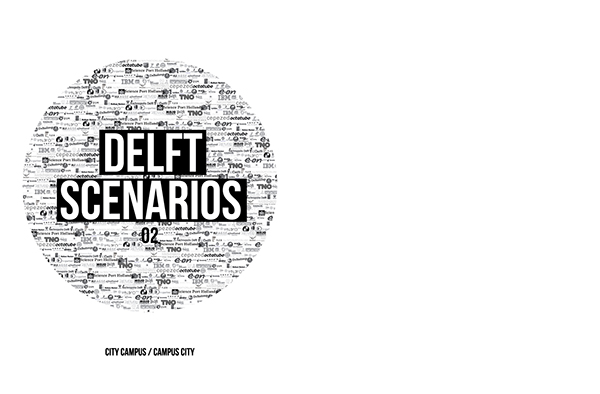
2014 / English
Results from the Delft Scenarios 02 'Design Thinking' studio for students of the University of Kentucky - College of Design and University Leiden - public administration. The studio explored plausibele scenarios for the municipality of Delft, reflecting on it's ambition to develop the relation between the Technical University and the city; 'City=Campus, Campus=City'.
Five scenarios are presented.
Contributions by Kevin Bloomfield, Madeline Cunningham, Oliver Hidalgo, Lauren Townsend & Sarah Wagner.
editor:
Siebe Bakker
graphic design:
Siebe Bakker, Kevin Bloomfield, Madeline Cunningham, Oliver Hidalgo, Lauren Townsend & Sarah Wagner
